Basic and Translational Research Division
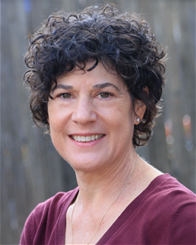 Director: Lori Sussel, PhD
Director: Lori Sussel, PhD
Professor of Pediatrics and Cell & Developmental Biology
Sissel and Findlow Stem Cell Chair
The BDC Research Division is striving to gain insight into the pathogenesis of type 1 diabetes at the cellular and molecular level. A biomedical resource core facility assists the basic and clinical research by providing assays to monitor the effectiveness of therapeutic interventions and disease recurrence. These interventions are/will be based upon a mechanistic understanding of immune-based therapies and work synergistically with the basic investigation of T-cell function. One strength of the BDC is the breadth of work studying T-cell recognition and biology, genetics and the biology of inflammatory cytokine mediators. These studies are greatly strengthened by the unique clinical resource of ongoing studies of newborns from the general population and relatives of patients with type 1 diabetes who are evaluated prospectively for the development of the antibodies associated with type 1 diabetes and the development of clinical diabetes as well as the great number of new onset patients willing to participate in research (>300/yr). Ongoing trials implement antigen-specifictherapies, including the use of small molecules aimed at restoration of immune tolerance. A relatively new strength of the research division are studies aimed at understanding the role of the pancreatic beta cell in T1D. There is growing evidence that the insulin-producing beta cell contributes to the onset and progression of disease. The BDC research division has expanded their expertise in this research area with the goal of identifying disease-predicting biomarkers that are secreted from the beta cell, developing novel methods to protect the beta cell from autoimmune destruction, and using human stem cell technologies to develop beta cell replacement therapies.
Departmental Faculty

Richard Benninger, PhD
The Benninger lab is a multi-disciplinary team of scientists who are guided by engineering principles and technologies to study the endocrine pancreas (islets of Langerhans). With mechanistic knowledge underlying the dynamics of islet function and hormone release, we can develop diagnostics and therapeutic interventions to effectively manage, cure and prevent diabetes. Towards this goal the lab combines novel optical imaging and ultrasound imaging approaches to study the function of the islets of Langerhans over multiple levels of organization, and how function is disrupted in diabetes.
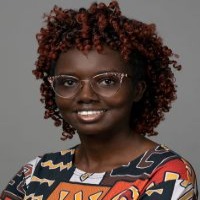
Abigael Cheruiyot Harvey, PhD
Dr Cheruiyot Harvey’s lab aims to understand how stressors in the pancreatic beta-cell microenvironment interact with mRNA translation quality control mechanisms to trigger autoimmunity in Type 1 diabetes (T1D) and drive disease progression in Type 2 Diabetes (T2D). Ultimately their mission is to develop novel approaches to protect beta-cells from immune destruction, prevent progressive beta-cell failure in diabetes, and improve functionality of ex vivo beta-cells for cell replacement therapies. To uncover these mechanisms, they integrate biochemical and multi-omics tools—including reporter assays, ribosome profiling, sequencing, proteomics, and CRISPR/Cas9 screening—using complementary models ranging from cell lines and primary human/mouse/rat islets to stem cell–derived beta-cells and in vivo systems.

Howard Davidson, PhD
Research in the Davidson laboratory is focused on understanding changes in the immune system that occur during and after the development of Type 1 diabetes (T1D) to impact the clinical course of the disease. The goal of this research is to develop new assays that more precisely define what is broken in an individual patient’s immune system.
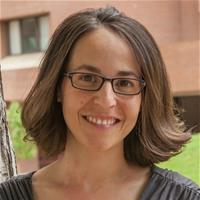
Rachel Friedman, PhD
Dr. Friedman’s lab seeks to understand how T cell pathogenesis and tolerance are controlled at the autoimmune disease site in the pancreatic islets during type 1 diabetes. Dr. Friedman is particularly interested in understanding how interactions between T cells and other cells of the immune system alter the T cell response. The Friedman lab has expertise in in vivo and intra-vital imaging. Using these techniques and others, they work to elucidate the dynamics of the immune response during autoimmunity.

Peter Gottlieb, MD
Dr. Peter Gottlieb is focusing on improving our ability to detect and understand human immune responses in T1D. Central to this work has been the use of ELISPOT analysis to characterize the antigen specificity and inflammatory potential of these responses. He also has initiated studies on the role of B lymphocytes in human T1D with Dr. Cambier which have detected a loss in anergic B cells during the development of autoimmune diabetes.
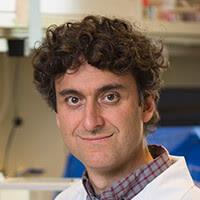
Jordan Jacobelli, PhD
My laboratory is interested in understanding how a network of proteins called the cytoskeleton regulates the migration and cell-cell interactions of lymphocytes. In particular, we focus on how cytoskeletal effector molecules, such as Ena/Vasp and Formin proteins, generate the mechanical forces and shape changes required for lymphocyte migration and
cell-cell interactions during homeostasis and disease. Currently, our main research focus is on a mouse models of autoimmunity, including type 1 diabetes and multiple sclerosis.

Aaron Michels, MD, PhD
Dr. Aaron Michels has a clinical and basic research focus on understanding the underlying immunology of diabetes. His group is working in collaboration with academic and industrial partners to identify therapeutic interventions, understand drug mechanisms, and translate relevant findings into clinical trials. They discovered that small ‘drug-like’ molecules can block immune cell responses and prevent diabetes onset in animal models of spontaneous autoimmune diabetes.
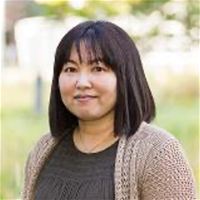
Maki Nakayama, MD, PhD
Dr. Maki Nakayama's lab explores antigen specificity and function of autoreactive T cells. It also studies the role of T cells expressing specific TCRs in the development of T1D using an animal model and more recently human T cells isolated from pancreas and lymph nodes. It pursues the potential of TCR sequences to be used as T cell biomarkers to predict the development of type 1 diabetes as well as recurrence of hyperglycemia after clinical therapeutic trials. They also explore the mechanism of transplantation failure in T1D patients.
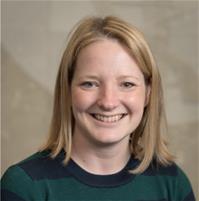
Mia Smith, PhD, DVM
Dr. Smith's laboratory studies the role of autoreactive B cells during development of type 1 diabetes (T1D), as well as other autoimmune disorders. The focus of my research is in understanding how these B cells become activated and work in concert with other cells of the immune system, such as T cells, to ultimately destroy the insulin-producing cells of the pancreas, leading to diabetes. My current and future research focus is further understanding the mechanisms that drive loss of B cell tolerance and the association of particular genetic risk alleles with loss of peripheral tolerance in autoimmunity. It is my goal that results from my studies will translate into possible future therapeutics to help prevent, delay, or treat type 1 diabetes.

Lori Sussel, PhD
Dr. Lori Sussel's lab uses animal models and primary human tissue to understand how beta cell dysfunction contributes to the development of Type 1 diabetes (T1D) in humans. In particular, her research focuses on characterizing genetic mutations that are associated with human T1D to determine whether they contribute to the disease or are merely correlative. Her lab continues to explore novel transcriptional regulatory mechanisms that will promote islet cell development survival and function in normal and pathophysiological conditions such as diabetes.
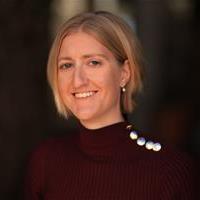
Kristen Wells-Wrasman, PhD
My position is an RNA Bioinformatics Fellow associated with the Barbara Davis Center. In this position I analyze genetic datasets generated within the Barbara Davis Center with the overall goal of studying cell development and transcriptomic changes associated with Type 1 Diabetes. Collaborations with many faculty in the Barbara Davis Center allow me to focus on various aspects of Type 1 Diabetes biology.
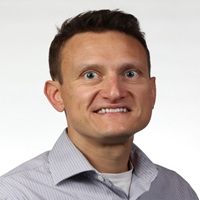
Matthew Wortham, PhD
The Wortham lab studies how pancreatic beta cells sense and respond to changes in their environment in physiological conditions or pathological states related to diabetes. We focus on how extracellular signals interface with gene regulation by monitoring effects of changing cellular environments upon epigenomic modifications and metabolism in the beta cell. To conduct these studies we employ metabolomics, single cell genomics, and genetic or pharmacological manipulations in primary human tissue and in animal models of diabetes. The goal of our research is to understand how this regulatory system could be therapeutically targeted to forestall beta cell destruction in type 1 diabetes.
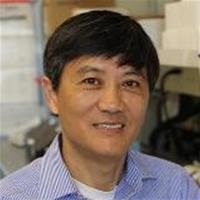
Liping Yu, MD
Dr. Liping Yu's laboratory is the international reference laboratory for measurement of islet autoantibodies. It serves as the core laboratory for Type 1 Diabetes TrialNet, The Environmental Determinants of Diabetes in the Young (TEDDY) and the Immune Tolerance Network (ITN) consortia. The laboratory, and in collaboration with others, have developed islet autoantibody assays for IAA, GADA, IA-2A, and ZnT8A that are the current “gold standard” in clinical immunology.
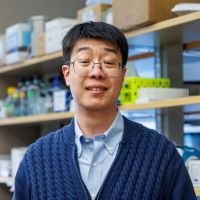
Han Zhu, PhD
Dr. Han Zhu joined the faculty of the Barbara Davis Center in 2024 and is also a member of the Department of Pediatrics, Section of Developmental Biology. His research focuses on the development and destruction of human pancreatic β-cells, particularly in the context of type 1 diabetes. He integrates functional genomics tools with human pluripotent stem cell-derived β-cell organoid models to uncover the gene regulatory mechanisms that govern β-cell formation and survival. Using this platform, Dr. Zhu aims to improve the in vitro production of human β-cells and to identify genetic and epigenetic regulators that influence β-cell resilience under diabetic conditions. Ultimately, his research goal is to develop novel therapeutic and prevention strategies for type 1 diabetes.
Affiliate Members
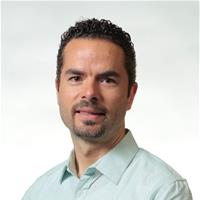
Rocky Baker, PharmD
Assistant Professor - Research
Department of Immunology & Microbiology
University of Colorado Denver School of Medicine

John Cambier, PhD
Distinguished Professor
Department of Immunology and Microbiology
University of Colorado Denver School of Medicine
Our work is focused on questions related to B cell antigen receptor structure and function in various biological contexts including cell activation, checkpoint signaling and anergy.
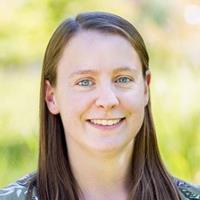
Nikki Farnsworth, PhD
Assistant Professor
Department of Chemical and Biological Engineering, Colorado School of Mines
The main goal of our research is to develop biomaterial scaffolds to investigate pancreatic islet interactions with their environment and to harness this information to develop T1D therapies using drug delivery or tissue engineering strategies.
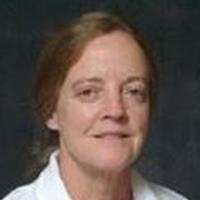
Katie Haskins, PhD
Professor
Department of Immunology and Microbiology, University of Colorado School of Medicine
My research focuses on the immunobiology of type 1 diabetes (T1D), specifically autoreactive T cells and their antigens.

Jefferson Knight, PhD
Associate Professor
Department of Chemistry, University of Colorado Denver
Dr. Knight’s research lab in the Department of Chemistry investigates molecular mechanisms of protein-lipid interaction, with a major focus on proteins that are central to the pathway of insulin secretion.
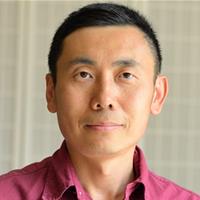
Jingshi Shen, PhD
Professor
Department of Molecular, Cellular and Developmental Biology, University of Colorado Boulder.
We aim to understand the molecular basis of regulated exocytic pathways essential to blood glucose homeostasis.